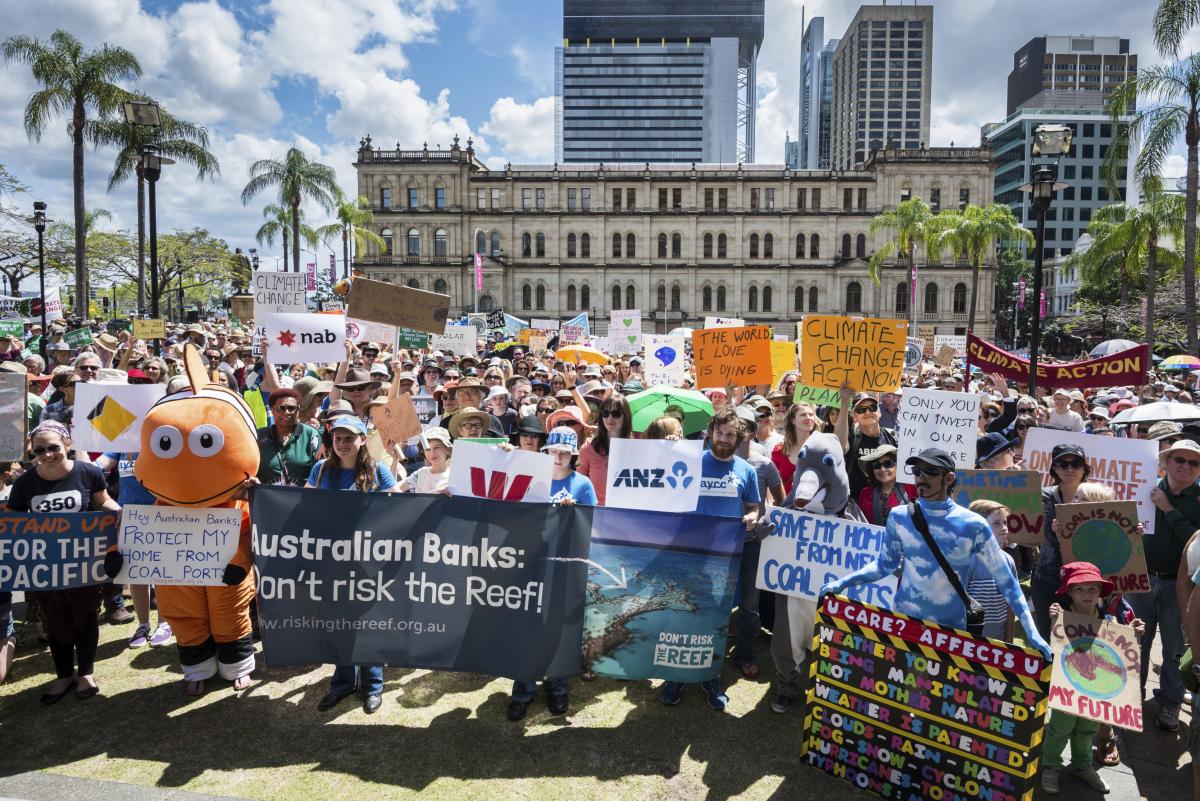Those planning projects that come with environmental risks are increasingly encountering a lack of financial support, as with the case of a major coal mine in Australia
For an industry that promised tens of thousands of jobs, and billions of dollars to state and federal governments in Australia in the form of royalties, things are not turning out well. In late July, Indian energy company Adani quietly cancelled contracts with companies hired to begin work on its massive Carmichael mine in Queensland’s Galilee Basin, a $10bn project that would involve a train line to an upgraded port some 450km away, and increased shipping through the delicate Great Barrier Reef.
Carmichael – and similar projects proposed in north Queensland - have become a touch-point in the fierce debate raging in Australia about the country’s energy future. It’s a debate that pits the coal industry and the Federal government on one side against environmentalists and an increasing number of financial analysts on the other side, concerned about the environmental impacts or the risk of losing billions in so-called stranded assets.
It is the banks that find themselves in the middle. The coal industry, and prime minister Tony Abbott and his ministers – argue that “coal is good for humanity”, that it is essential to deliver electricity to hundreds of millions of people who have no access to the grid, and that there will be increasing demand for the commodity.

The World Bank, among others, say this is not true. It points to the devastating environmental and climate impacts of coal, to the fact that electricity is much more likely to get to the rural poor through distributed solar, and to the fact that the biggest coal importers are likely to rapidly reduce their demand.
That, the analysts say, is already happening. Coal imports from China are down nearly half in the past year, and China could stop all imports within a few years as it focuses more on renewable energy such as wind and solar, and meets any rise in coal demand through internal supplies.
In India, the same prospect exists. The energy minister, Piyush Goyal, has said he wants to increase domestic production, and reduce imports to zero. Imported coal is significantly more expensive, and recent tenders for solar capacity suggest that large scale PV arrays are already cheaper than generation from imported coal, and may soon even match generation from domestic supplies.
So to what extent is the Galilee Basin a symptom of an industry in decline, or a litmus test for environmental causes in a world that is starting, once again, to take climate change seriously?
Tim Buckley, an Australia-based analyst for the New York-based Institute for Energy Economics and Financial Analysis, says Adani appears to remain convinced that the thermal coal market is only experiencing a cyclical trough, rather than permanent structural decline.
“From a financial perspective, with thermal coal price forwards sitting at US$58 a tonne out through to 2021, the prospects of this project being commercially viable are absolutely remote,” Buckley says.
“The prospects for the project to be bankable by global financial institutions is also remote, given they understand the project is not commercially viable, and that there is enormous community resistance, and also that it is inevitable that there will be continued further, global moves towards decarbonisation. Hence opening up the world's largest new coal basin makes no economic sense from a climate or regulatory perspective.”

Buckley points to the fact that Standard Chartered and Commonwealth Bank of Australia have been doing advisory work for Adani, but have yet to get a single financial institution to commit to providing funding for stage one of the project.
“The last hope Adani has is that they can somehow get the Abbott government to allow Australian taxpayers to underwrite a big chunk of the project’s financial risk, and the means for Abbot to achieve that is through the North Australia Infrastructure Fund,” Buckley explains. That fund has been dubbed the “Dirty Energy Finance Corporation” by environmentalists.
Protest
Sebastian Bock, investment campaigner at Greenpeace UK, says the Great Barrier Reef is one of the world’s most magnificent natural wonders and people around the world care deeply about protecting it. “It was therefore not surprising that we saw protests spanning Europe, Asia and Australia when the public learned that Standard Chartered was [involved in] one of the world’s biggest coal mining projects which would directly threaten the future of the Reef.”
With the global coal price declining and the huge reputational risks associated with financing projects that risk destroying the Reef, many leading global banks (e.g. Goldman Sachs, HSBC, Deutsche Bank) have decided to follow the science and rule out any involvement in the project. Bock says Greenpeace will continue to campaign against Standard Chartered over its involvement.
Stephen Hine, deputy chief executive of global environmental research provider EIRIS, says communities potentially affected by new projects, especially in the resources sector, are becoming more sophisticated in their campaigning and can now call on the support of investors to get their position across.
Hine says: “Corporates that are not proactive in managing [environmental, social and governance] risks may well find themselves subjected to considerable scrutiny from investors, who, keen to protect the value of their investments, will ask tough questions to ensure that companies better handle these challenges.”
Australia extractives coal mining

